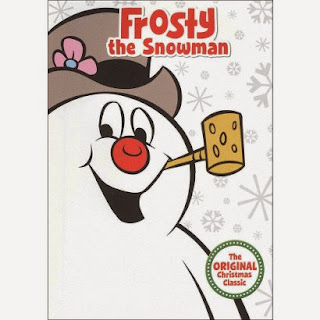Rotten Tomatoes audience rating: 14%
We're scraping the bottom of the stocking this time. Notice that that 14% score is an audience rating. As we all know, the audience reviews are usually unrealistically positive, so this is a truly abysmal showing.
This is, of course, a Hallmark original movie. Over the last few years, the Hallmark Channel has become to adults what the Disney Channel once was for children, namely a clearinghouse of inoffensive, inexpensive, incompetent movies produced on the business model of an all-you-can eat buffet: Quantity over quality, drinks are extra, and stay the hell away from the seafood.
Starting around Halloween and continuing until the New Year, Hallmark throws its assembly line into overdrive and produces at least 600 new movies a day, all of them cheesy, family-friendly romantic comedies taking place around Christmas and featuring actors whose names are vaguely familiar. This time out we get Jesse Spano from Saved by the Bell and Lt. Randy Disher from Monk as Holly and Mike.
As always, the female lead is a pretty, likable single mom whose tremendous intelligence and potential are being squelched by her life circumstances. And as always, the male lead is a handsome, likable single man whose foolhardy but non-malicious actions get him into trouble. (I say handsome, but Mike does his best to hide his handsomeness in this film by wearing a hideous House M.D. beard.)
Holly is a chef by trade, but she just can't get together the money she needs to open up a restaurant. Meanwhile, Mike is a highly-educated architect who is stuck doing menial labor in the family business because his uptight brother won't listen to his big ideas. While Holly is lamenting her difficulties with her best friend (a character who never once speaks to anyone else but Holly—is she a ghost?), she fails to realize that Mike is in the same bar with his best friend, the world's biggest chowderhead.
Mike has taken one too many of his sister's snake-oil cold pills, so he passes out at the bar, and his idiot friend has to drive him home. Since the friend's car has been booted by the police for unpaid parking tickets, he decides to "borrow" another car, which just so happens to be Holly's. Now, the idiot friend has no intention of keeping the car, but once he discovers a lottery ticket in the glove compartment, he ropes Mike into a harebrained extortion scheme. Needless to say, the scheme requires Mike to pretend to fall in love with Holly, and now you can see the shape this mess is taking.
You can probably fill in the rest of the blanks for yourself. It involves Holly's horrified revelation that their relationship is a sham, Mike's belated realization that he has fallen in love for real, a lot of ineffectual attempts by Mike to make things right, and a huge number of very prominent references to the Pinewood Derby. (You probably wouldn't have guessed that last one, but man, they sure plug that Pinewood Derby for all its worth.)
Mike attempts to return the lottery ticket, but due to a contrived series of oversights, Holly doesn't find it until the last ten minutes of the movie. The lottery ticket has to be turned in at midnight on Christmas Eve, and Holly finds it two hours before the deadline. But just to manufacture some suspense for the big finale, she then spends an hour and 45 minutes driving around the city searching for Mike to reconcile with him before they cash in the ticket. She finds Mike with just minutes to spare, and then stands and talks to him for an eternity while the clock ticks down. For crying out loud, there's suspense, and then there's just bad writing.
The final shot of the movie is Holly and Max walking into City Hall to redeem the ticket just as the clock strikes twelve. There's a school of thought that holds that leaving a story's outcome to the audience's imagination makes it more satisfying. I have some sympathy for that perspective, but with a movie this bad I don't think it's worth the bother. If they really want to take that strategy, why not just end the movie right after the opening credits?
Yeah, this is a really bad movie. But 14% from the viewers? That's just appalling.
Unbelievably, but this thing managed to be
TMoC:
1. The lottery is your secret to a happy life.
Actually, as the state lottery commission informs us, "lottery games are based on chance, and should [not] be played[.]"
2. The Pinewood Derby is an alternate secret to a happy life.
When George Costanza was a Cub Scout, he got stuck on Webelos for three years because he kept losing the Pinewood Derby. Happy Festivus!


































